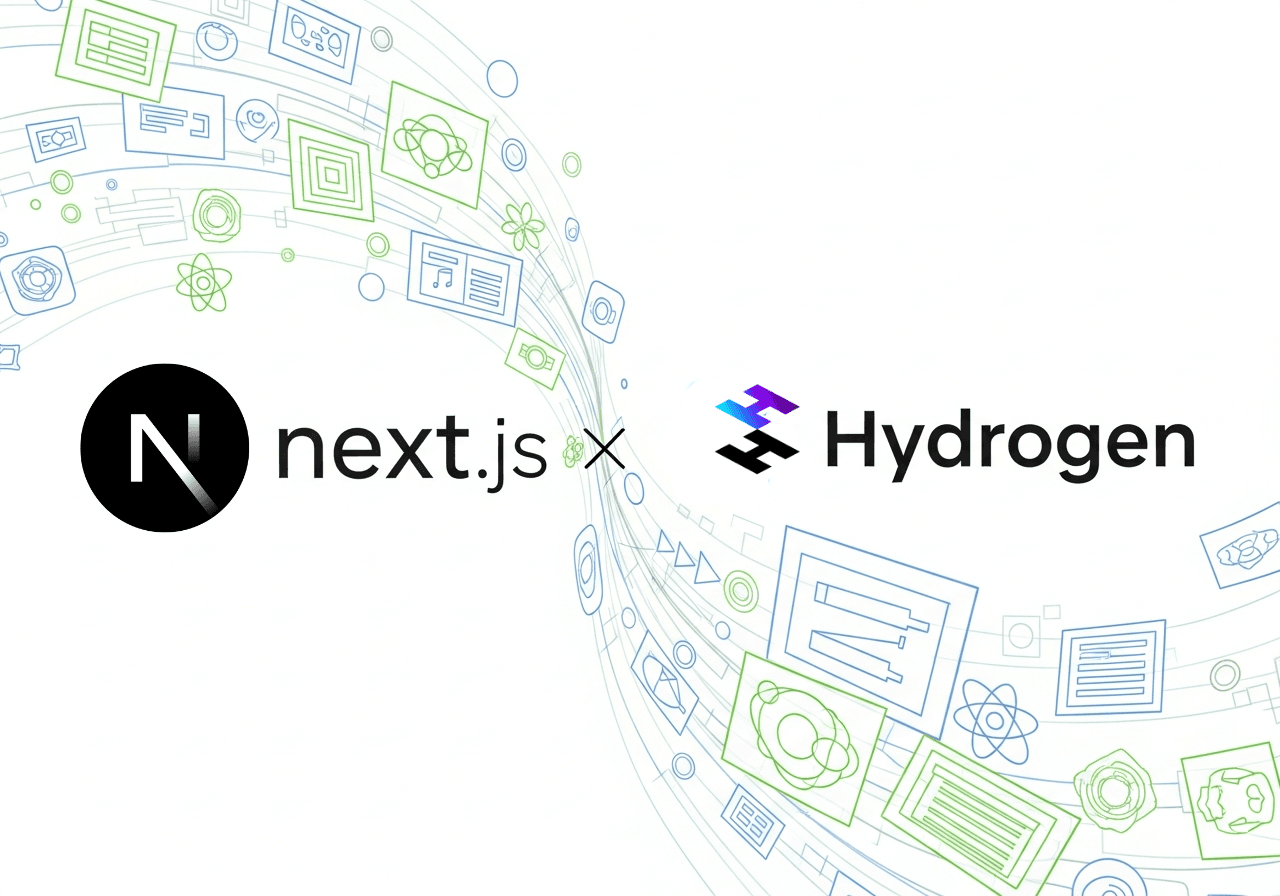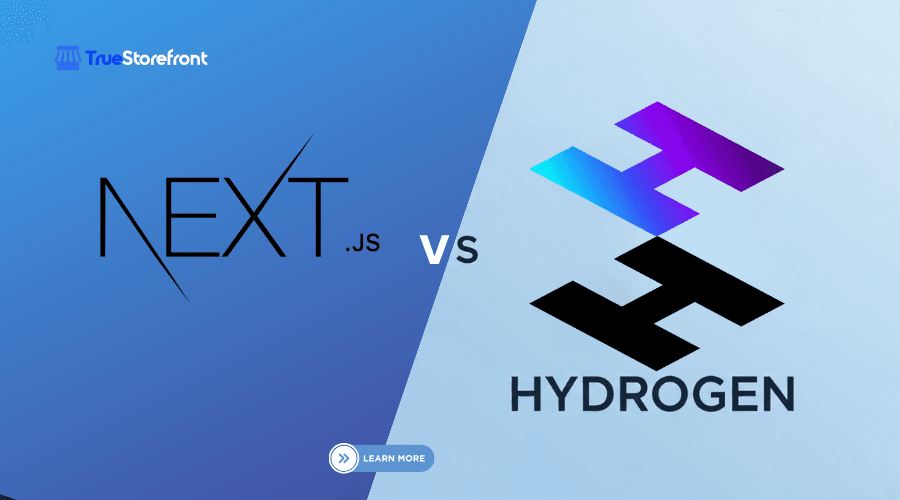As Shopify merchants adopt headless commerce to build faster and more flexible online stores, choosing the right frontend framework becomes crucial. Two popular choices emerge for developers: Next.js and Hydrogen.
While both frameworks enable modern, high-performing storefronts, they differ in architecture, ecosystem, and use cases. This article compares Next.js vs Hydrogen to help you choose the ideal frontend technology for your Headless Shopify store.
I. Understanding Headless Shopify
Headless Shopify separates the frontend (presentation layer) from the backend (Shopify engine).
Instead of relying on Shopify’s traditional Liquid templates, developers use APIs to fetch data from Shopify and display it using a modern framework like Next.js or Hydrogen.
Benefits of Headless Shopify:
- Faster page load times and better Core Web Vitals
- Omnichannel experience across web, mobile, and POS
- Customization flexibility without Shopify’s theme limitations
- Integration with external CMS, CRM, and analytics tools
This architecture empowers developers to craft unique user experiences while keeping Shopify’s backend power.
II. Overview of Next.js and Hydrogen

2.1 Next.js
Next.js, built on React, is one of the most popular frameworks for modern web development. Maintained by Vercel, it provides hybrid rendering, static site generation (SSG), and server-side rendering (SSR).
Key Advantages of Next.js:
- Flexibility: Integrates easily with any backend, including Shopify.
- Performance: Pre-rendered pages ensure high speed and SEO performance.
- Ecosystem: Vast plugins, middleware, and developer community.
- Deployment: Simple with Vercel, Netlify, or any Node.js server.
2.2. Hydrogen
Hydrogen is Shopify’s React-based framework designed specifically for building headless Shopify storefronts. It’s optimized for Shopify’s APIs and backed by Oxygen, Shopify’s hosting platform.
Key Advantages of Hydrogen:
- Native Shopify integration: Ready-to-use hooks for Storefront API and cart management.
- Server Components: Reduces JavaScript load for faster performance.
- Oxygen hosting: Fully managed environment by Shopify.
- Starter templates: Speeds up development with pre-built Shopify components.
2.3. Next.js vs Hydrogen: Feature Comparison
II. Performance and SEO
Both frameworks prioritize speed and SEO, critical for conversion and ranking.
-
Next.js leverages Incremental Static Regeneration (ISR), enabling real-time updates without rebuilding the entire site. This gives an edge for stores with frequently updated inventories.
-
Hydrogen uses React Server Components (RSC) to minimize client-side JavaScript, boosting page speed.
Verdict:
If you want maximum performance flexibility across various APIs and content sources, Next.js is ideal. But if your focus is purely Shopify, Hydrogen delivers faster Shopify-specific optimization.
IV. Developer Experience
 Next.js offers a mature ecosystem with full control over routing, APIs, and integrations. Developers can combine CMS tools like Sanity, Contentful, or Strapi easily.
Next.js offers a mature ecosystem with full control over routing, APIs, and integrations. Developers can combine CMS tools like Sanity, Contentful, or Strapi easily.
Hydrogen, on the other hand, simplifies development with pre-configured Shopify utilities such as:
useShopQuery()for data fetchinguseCart()for cart operations- Pre-built product and checkout components
Verdict: Hydrogen offers faster setup for Shopify-exclusive projects. Next.js offers more flexibility for multi-platform and custom integrations.
V. Hosting and Deployment
Next.js provides flexible deployment options:
- Vercel: Native platform with zero-config deployment
- Netlify / AWS: Great for enterprise-level control
Hydrogen integrates with Shopify Oxygen, offering:
- Optimized hosting for Hydrogen apps
- Global CDN coverage
- Built-in SSL and performance monitoring
Verdict: If you prefer all-in-one Shopify infrastructure, Hydrogen + Oxygen is seamless. For more customization or hybrid architecture, Next.js provides broader control.
VI. Use Case Scenarios
VII. Limitations
Next.js:
- Requires manual Shopify API setup
- Slightly more setup time for carts and checkout
- Learning curve for incremental builds
Hydrogen:
- Tied to Shopify ecosystem only
- Fewer third-party integrations
- Smaller community compared to Next.js
VIII. Which Framework Should You Choose?
Choose Next.js if you:
- Want a multi-platform or multi-store setup
- Need flexibility for custom APIs, CMS, and external tools
- Plan for complex scaling beyond Shopify
Choose Hydrogen if you:
- Want a Shopify-first solution
- Need fast setup and built-in eCommerce features
- Prefer Shopify-managed hosting (Oxygen)
Conclusion
Both Next.js and Hydrogen are excellent frameworks for building Headless Shopify frontends. Your decision depends on the project’s scope, scalability, and integration requirements.
- Hydrogen offers a streamlined path for Shopify-exclusive builds.
- Next.js provides unmatched versatility for businesses looking to expand across multiple channels.
Pick the right tech stack based on your long-term eCommerce goals, whether it’s the simplicity of Hydrogen or the scalability of Next.js, both frameworks position your Shopify store for the future of headless commerce.
Read more:
